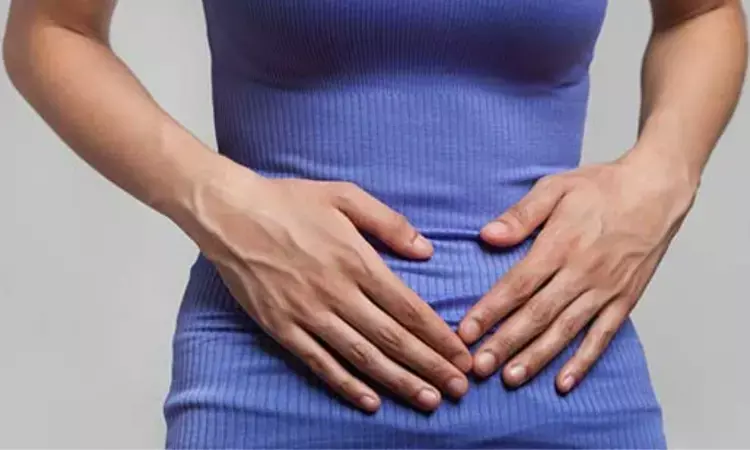- Home
- Medical news & Guidelines
- Anesthesiology
- Cardiology and CTVS
- Critical Care
- Dentistry
- Dermatology
- Diabetes and Endocrinology
- ENT
- Gastroenterology
- Medicine
- Nephrology
- Neurology
- Obstretics-Gynaecology
- Oncology
- Ophthalmology
- Orthopaedics
- Pediatrics-Neonatology
- Psychiatry
- Pulmonology
- Radiology
- Surgery
- Urology
- Laboratory Medicine
- Diet
- Nursing
- Paramedical
- Physiotherapy
- Health news
- Fact Check
- Bone Health Fact Check
- Brain Health Fact Check
- Cancer Related Fact Check
- Child Care Fact Check
- Dental and oral health fact check
- Diabetes and metabolic health fact check
- Diet and Nutrition Fact Check
- Eye and ENT Care Fact Check
- Fitness fact check
- Gut health fact check
- Heart health fact check
- Kidney health fact check
- Medical education fact check
- Men's health fact check
- Respiratory fact check
- Skin and hair care fact check
- Vaccine and Immunization fact check
- Women's health fact check
- AYUSH
- State News
- Andaman and Nicobar Islands
- Andhra Pradesh
- Arunachal Pradesh
- Assam
- Bihar
- Chandigarh
- Chattisgarh
- Dadra and Nagar Haveli
- Daman and Diu
- Delhi
- Goa
- Gujarat
- Haryana
- Himachal Pradesh
- Jammu & Kashmir
- Jharkhand
- Karnataka
- Kerala
- Ladakh
- Lakshadweep
- Madhya Pradesh
- Maharashtra
- Manipur
- Meghalaya
- Mizoram
- Nagaland
- Odisha
- Puducherry
- Punjab
- Rajasthan
- Sikkim
- Tamil Nadu
- Telangana
- Tripura
- Uttar Pradesh
- Uttrakhand
- West Bengal
- Medical Education
- Industry
Pelvic Floor Training during pregnancy may Reduce risk of perineal tear and urinary incontinence

In a recent study unveiled promising findings of the effectiveness of pelvic floor muscle training (PFMT) during pregnancy in reducing significant maternal health issues. The key findings of the study were published in Acta Obstetricia et Gynecologica Scandinavica. This study focused on the efficacy of PFMT by recognizing the importance of physical activity during pregnancy, specially for the prevention of pregnancy-related complications.
This systematic review and meta-analysis encompassed 30 studies with a total of 6691 participants analyzed the impact of PFMT on crucial aspects of maternal health. The results, published between 2010 and 2023, revealed compelling evidence supporting the preventive role of PFMT in urinary incontinence and the occurrence of third- or fourth-degree perineal tears during labor.
The analysis showed a significant reduction in the risk of urinary incontinence (RR = 0.72, 95% CI: 0.59, 0.87) and third- or fourth-degree perineal tears (RR = 0.50, 95% CI: 0.31, 0.80) with the implementation of PFMT during pregnancy. But, the preventive impact on episiotomy did not reach statistical significance.
These findings from the study highlight the potential of incorporating PFMT into antenatal care and training programs as a proactive measure for maternal well-being. This study advocates for a more comprehensive approach to prenatal care with the prevention of urinary incontinence and perineal tears emerging as favourable benefits. These outcomes suggest that PFMT may play a critical role in enhancing maternal health and improved childbirth outcomes and a better quality of life for women during and after pregnancy.
Source:
Zhang, D., Bo, K., Montejo, R., Sánchez‐Polán, M., Silva‐José, C., Palacio, M., & Barakat, R. (2023). Influence of pelvic floor muscle training alone or as part of a general physical activity program during pregnancy on urinary incontinence, episiotomy and third‐ or fourth‐degree perineal tear: Systematic review and meta‐analysis of randomized clinical trials. In Acta Obstetricia et Gynecologica Scandinavica. Wiley. https://doi.org/10.1111/aogs.14744
Neuroscience Masters graduate
Jacinthlyn Sylvia, a Neuroscience Master's graduate from Chennai has worked extensively in deciphering the neurobiology of cognition and motor control in aging. She also has spread-out exposure to Neurosurgery from her Bachelor’s. She is currently involved in active Neuro-Oncology research. She is an upcoming neuroscientist with a fiery passion for writing. Her news cover at Medical Dialogues feature recent discoveries and updates from the healthcare and biomedical research fields. She can be reached at editorial@medicaldialogues.in
Dr Kamal Kant Kohli-MBBS, DTCD- a chest specialist with more than 30 years of practice and a flair for writing clinical articles, Dr Kamal Kant Kohli joined Medical Dialogues as a Chief Editor of Medical News. Besides writing articles, as an editor, he proofreads and verifies all the medical content published on Medical Dialogues including those coming from journals, studies,medical conferences,guidelines etc. Email: drkohli@medicaldialogues.in. Contact no. 011-43720751


